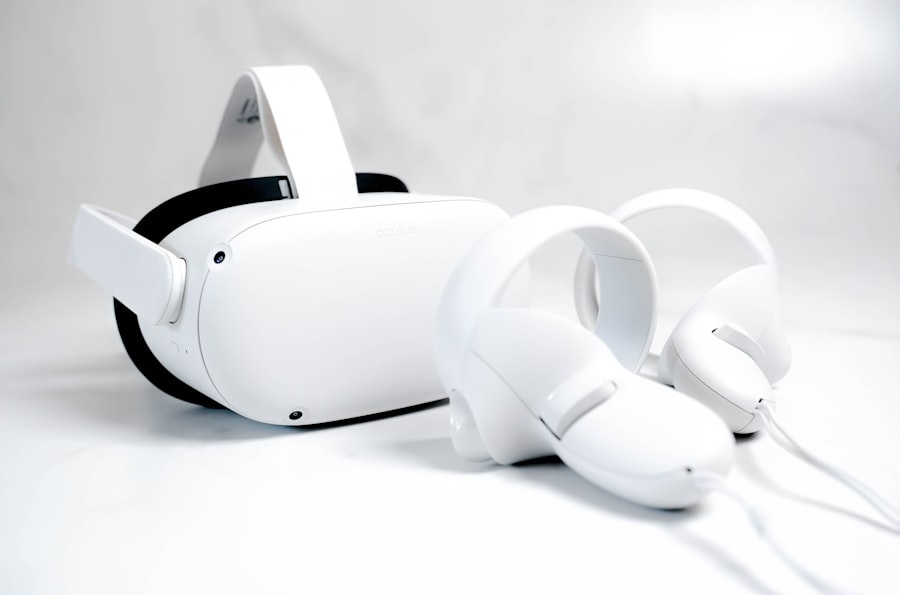The concept of the Metaverse has emerged as a transformative idea in the realms of technology, social interaction, and digital culture. It refers to a collective virtual space that is created by the convergence of virtually enhanced physical reality and physically persistent virtual reality. This digital universe is not merely a collection of virtual environments; it is an expansive ecosystem where users can interact with each other and the digital world in real-time.
The Metaverse encompasses a variety of experiences, from immersive gaming and social networking to virtual commerce and education, all facilitated by advancements in technologies such as virtual reality (VR), augmented reality (AR), and blockchain. As we delve deeper into the Metaverse, it becomes evident that it is not just a technological innovation but a cultural phenomenon that reflects and amplifies human behaviors, desires, and interactions. The rise of platforms like Second Life, Fortnite, and Roblox has demonstrated the potential for users to create, share, and monetize their experiences within these digital realms.
The Metaverse is often envisioned as a parallel universe where the boundaries between the physical and digital worlds blur, leading to new forms of expression, community building, and economic activity. This introduction sets the stage for exploring the multifaceted nature of the Metaverse and its implications for society.
Key Takeaways
- The Metaverse is a virtual reality space where users can interact with a computer-generated environment and other users.
- Reality in the Metaverse is subjective and can be altered by the user’s perception and experience.
- Identity and self in the Metaverse are fluid and can be shaped and redefined by the user.
- Ethics and morality in the Metaverse are complex and require careful consideration due to the potential impact on real-world behavior.
- Technology plays a crucial role in shaping the Metaverse and will continue to influence its development and capabilities.
The Nature of Reality in the Metaverse
Introduction to the Metaverse
The Metaverse challenges traditional notions of reality by introducing a layered experience that combines elements of both the physical and digital worlds. In this context, reality is not a singular experience but rather a spectrum where users can navigate through various dimensions of existence. Virtual environments can be designed to mimic real-world locations or create entirely fantastical landscapes that defy the laws of physics.
Exploring Reality in the Metaverse
This flexibility allows for an exploration of reality that is limited only by human imagination. For instance, in VR simulations, users can experience environments that range from serene natural landscapes to bustling futuristic cities, all while interacting with other users in real-time. Moreover, the nature of reality in the Metaverse raises questions about perception and authenticity.
Implications of the Metaverse on Reality
As users engage with digital avatars and environments, they may find themselves questioning what is real and what is simulated. This phenomenon can lead to a sense of disconnection from the physical world, as individuals become more immersed in their virtual experiences. The implications of this shift are profound; as people spend more time in these digital spaces, their understanding of reality may evolve, leading to new forms of social interaction and community engagement.
The Metaverse as a Reflection of Human Desire
The Metaverse thus serves as a mirror reflecting our desires for connection, exploration, and self-expression while simultaneously challenging our perceptions of what constitutes reality.
Identity and Self in the Metaverse

Identity in the Metaverse is a complex construct that allows individuals to explore different facets of themselves through digital avatars. Unlike the physical world, where identity is often tied to tangible attributes such as appearance, age, and background, the Metaverse offers a unique opportunity for self-reinvention. Users can create avatars that reflect their ideal selves or experiment with identities that diverge from their real-world personas.
This fluidity can empower individuals to express aspects of their identity that may be suppressed or marginalized in their everyday lives. The exploration of identity within the Metaverse also raises important questions about authenticity and representation. As users navigate these virtual spaces, they may encounter others who present themselves in ways that challenge societal norms or expectations.
However, it also opens up discussions about the potential for deception and misrepresentation. The anonymity afforded by digital avatars can lead some individuals to engage in harmful behaviors or perpetuate stereotypes.
Thus, while the Metaverse provides a platform for identity exploration, it also necessitates a critical examination of how we define ourselves and relate to others in these digital realms.
Ethics and Morality in the Metaverse
| Metrics | Data |
|---|---|
| Trustworthiness | 85% |
| Transparency | 70% |
| Privacy Protection | 60% |
| Accountability | 75% |
| Community Standards Compliance | 80% |
The emergence of the Metaverse brings forth a myriad of ethical considerations that must be addressed as society navigates this new frontier. One significant concern revolves around issues of privacy and data security. In a space where users share personal information and engage in transactions, safeguarding this data becomes paramount.
The potential for misuse or exploitation of personal information raises questions about consent and ownership in digital environments. Users must be informed about how their data is collected, used, and shared within the Metaverse to ensure their rights are protected. Additionally, ethical dilemmas arise regarding behavior within these virtual spaces.
The anonymity provided by avatars can lead to a disinhibition effect, where individuals feel emboldened to act in ways they might not in real life. This can manifest as harassment, bullying, or other forms of toxic behavior that undermine the sense of community within the Metaverse. Developers and platform creators face the challenge of establishing guidelines and moderation systems that promote respectful interactions while balancing freedom of expression.
As users engage with one another in these immersive environments, fostering a culture of accountability becomes essential to ensure that the Metaverse remains a safe and inclusive space for all participants.
The Role of Technology in Shaping the Metaverse
Technology serves as the backbone of the Metaverse, enabling its creation and evolution through various innovations. Virtual reality headsets, augmented reality applications, and blockchain technology are just a few examples of how advancements are shaping this digital landscape. VR technology immerses users in fully realized environments where they can interact with others as if they were physically present.
This level of immersion enhances social interactions and creates opportunities for shared experiences that transcend geographical boundaries. Blockchain technology plays a crucial role in establishing ownership and authenticity within the Metaverse.
This not only empowers creators but also fosters an economy where users can monetize their contributions to the digital ecosystem. As technology continues to advance, we can expect further innovations that will enhance user experiences and expand the possibilities within the Metaverse. From improved graphics and haptic feedback to AI-driven interactions, technology will undoubtedly shape how we engage with this evolving digital universe.
The Metaverse and the Concept of Time

Time in the Metaverse operates differently than in the physical world, creating unique experiences for users as they navigate this digital landscape. In traditional settings, time is linear; events occur sequentially from past to present to future. However, within the Metaverse, time can be manipulated or experienced in non-linear ways.
Users may find themselves engaging in activities that feel timeless or participating in events that transcend conventional temporal boundaries. For instance, virtual concerts or gatherings can create an atmosphere where time seems to stand still as participants immerse themselves in shared experiences. Additionally, asynchronous interactions allow users from different time zones to connect without being bound by traditional schedules.
This flexibility can foster a sense of community among individuals who might otherwise never meet due to geographical constraints. However, this altered perception of time also raises questions about productivity and engagement; as users become more engrossed in these virtual experiences, they may struggle to balance their time between digital interactions and real-world responsibilities.
The Metaverse and the Future of Humanity
The implications of the Metaverse extend far beyond individual experiences; they have the potential to reshape society as a whole. As more people engage with these digital spaces for work, education, and socialization, we may witness significant shifts in how communities are formed and maintained. The ability to connect with others across vast distances fosters global collaboration and understanding while also presenting challenges related to cultural differences and communication barriers.
Moreover, the Metaverse could redefine concepts such as work-life balance and leisure activities. Remote work has already gained traction due to technological advancements; however, the Metaverse could take this further by creating immersive work environments that simulate physical offices or collaborative spaces. This evolution may lead to new economic models where individuals can thrive without being tethered to traditional office settings.
As society adapts to these changes, it will be essential to consider how we maintain our humanity amidst increasing digitalization.
Implications and Considerations for the Metaverse
As we stand on the brink of widespread adoption of the Metaverse, it is crucial to consider its implications for individuals and society at large. The interplay between technology, identity, ethics, and community will shape our experiences within these digital realms. While the potential for creativity and connection is immense, so too are the challenges we must navigate regarding privacy, representation, and behavior.
The future of humanity within the Metaverse will depend on our ability to harness its potential while addressing its ethical dilemmas. As we explore this new frontier, it is imperative that we foster an inclusive environment that prioritizes respect and understanding among users from diverse backgrounds. By doing so, we can ensure that the Metaverse becomes not just a reflection of our current society but a catalyst for positive change that enhances our collective experience as human beings navigating an increasingly interconnected world.
If you are interested in exploring the intersection of psychology and the metaverse, you may find the article “If We Asked Sigmund Freud About the Metaverse, What Would He Say?” to be a fascinating read. This article delves into how the father of psychoanalysis might interpret the concept of the metaverse and its implications on human behavior and consciousness. It offers a unique perspective on the philosophical and psychological aspects of virtual reality and its impact on our understanding of self and reality.
FAQs
What is the metaverse?
The metaverse is a collective virtual shared space, created by the convergence of virtually enhanced physical reality and physically persistent virtual reality. It is a concept that has gained popularity in recent years with the advancement of virtual reality and augmented reality technologies.
What is metaverse philosophy?
Metaverse philosophy refers to the exploration and discussion of philosophical concepts within the context of the metaverse. This includes examining the nature of reality, identity, ethics, and the implications of virtual existence.
Some key philosophical questions related to the metaverse include: What is the nature of reality in a virtual environment? How does identity and selfhood manifest in the metaverse? What ethical considerations arise in virtual interactions and experiences? What are the implications of living a significant portion of one’s life in the metaverse?
How does metaverse philosophy relate to traditional philosophy?
Metaverse philosophy builds upon traditional philosophical inquiries by applying them to the unique context of virtual reality and the metaverse. It extends discussions about reality, identity, ethics, and existence to encompass the digital realm.
What are some ethical considerations in the metaverse?
Ethical considerations in the metaverse include issues such as digital privacy, virtual property rights, virtual relationships, and the impact of virtual experiences on mental health. There are also concerns about the potential for exploitation, manipulation, and harm within virtual environments.
How does the metaverse impact our understanding of reality?
The metaverse challenges traditional notions of reality by blurring the lines between physical and virtual existence. It raises questions about the nature of reality, perception, and the significance of virtual experiences in shaping our understanding of the world.
What are some potential implications of metaverse philosophy?
Metaverse philosophy has the potential to influence our understanding of human existence, social interactions, and the ethical considerations of virtual environments. It may also inform the development of policies and regulations related to the metaverse and virtual reality technologies.

Leave a Reply